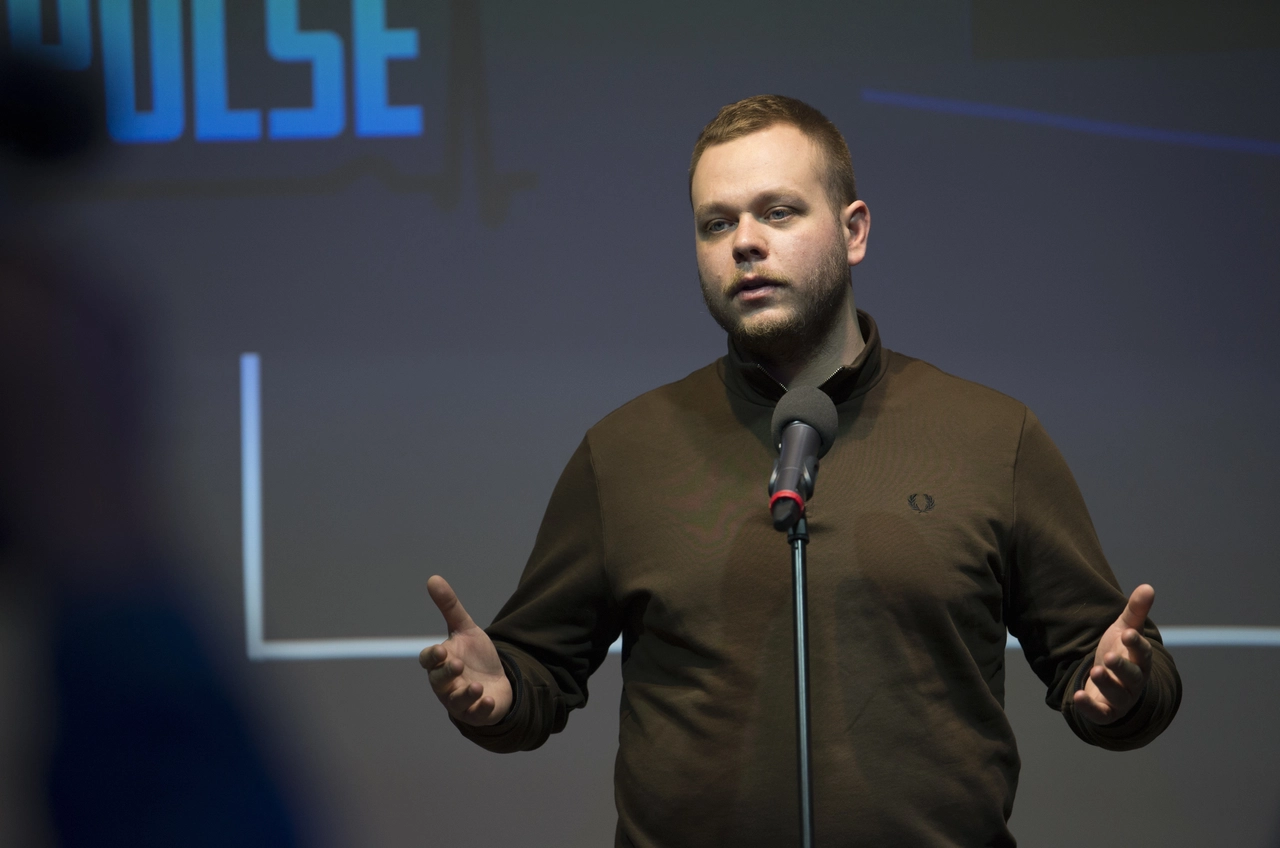Fedir Serdiuk, a 28-year-old entrepreneur born in Odesa, embodies the new generation of Ukrainian leaders emerging during the conflict with Russia, overshadowing the old post-Soviet generation. His extraordinary professional itinerary has marked a new chapter in entrepreneurship and innovation, guiding change in a time of dire need for his country.
In 2014, as Ukraine faced increasing instability, Serdiuk voluntarily stepped up by joining the Red Cross Rescue Team. During this experience, he understood the lack of organization in Ukraine concerning first aid. This awareness inspired his subsequent entrepreneurial initiative: the founding of FAST, a company dedicated to providing first aid training to over 220 businesses.
JOIN US ON TELEGRAM
Follow our coverage of the war on the @Kyivpost_official.
The building up of a new culture in the field of emergency made him bring legislative proposal at government level. His bold vision and commitment, led Serdiuk to be recognized as one of Ukraine’s most promising young leaders, earning a spot on Forbes Ukraine’s 2020 list 30-under-30 and on Forbes Europe’s 2021 list 30-under-30 for the “social impact” category.
The pinnacle of his entrepreneurial journey came in 2019 and 2022 when he was invited to speak at the World Economic Forum in Davos. There, he shared his experience and vision for the future of emergency medicine, highlighting the importance of timely interventions and specialized skills in emergency situations.

Quarter Million Without Heat and Power: Kyiv, Odesa Under Russian Attack
But it was during the outbreak of the war with Russia that Serdiuk truly showcased his leadership. Since the beginning of the Russian invasion of Ukraine in 2022, recognizing the escalating demand for first aid and battlefield medicine skills, Serdiuk co-founded PULSE – a charity with a mission to support the development of emergency and combat medicine in the Armed Forces of Ukraine.
His goal? To save thousands of lives on the battlefield.
PULSE’s training center in Odesa quickly became the largest in Ukraine, with over 25,000 people already trained. But Serdiuk didn’t stop at revolutionizing healthcare in his country. With the support of private donors, PULSE also began exporting his emergency medicine expertise to other NATO countries, such as Estonia.
How difficult was it to push your innovative approach to first aid in the Ukrainian private sector and public administration?
Initially, our “assets” included only a number of motivated individuals who recognized the national security challenge since 2014 and were committed to safeguarding the lives of their friends, employees, and relatives. Unlike in EU countries or the US, supportive legislation for first aid development was non-existent, and our marketing resources were limited. Consequently, our reliance was solely on dedicated ambassadors who championed the cause of enhancing Ukraine’s safety by training as many people as possible in emergency response. In my view, we were slow but eventually successful.
We engaged with television and journalists to underscore the importance of first aid and general emergency preparedness. We collaborated with Health, Safety, and Environment (HSE) professionals to demonstrate that first aid is a critical component of workplace safety.
We also worked with the opinion leaders to dismantle the Soviet-era stereotype that first aid and fire drills were merely formal, unengaging procedures rather than effective preparation. The increasing threats from Russia further motivated people to seek methods of self-protection.
Today, it’s evident that much work remains, but the achievements are clear. No soldier would now dismiss a tourniquet as an unnecessary piece of equipment. It’s no longer a surprise to see management organizing first aid training. Automatic defibrillators in Kyiv’s subways are now viewed as normal – this was not always the case.
How was it to represent your country at Davos during a large-scale war?
From my first attendance at the WEF Annual Meeting, I understood the importance of human-to-human international connections, which can significantly benefit communities. Our ongoing dialogue with the WEF team, especially after President Zelensky’s election, prepared us well. Following the escalation on Feb. 24, 2022, the challenges were monumental. Initially, even discussions about Western countries sending artillery were contentious, remember?
After receiving my invitation to WEF-2022, my first action was to consult [Foreign] Minister [Dmytro] Kuleba, who arranged a briefing for me and a few other WEF AM participants on Ukraine’s most pressing needs alongside insights from economic, financial, and military perspectives. It was our responsibility to convey these urgent messages to the media, congressmen, heads of state, and other decision-makers – an opportunity we seized.
How are you cooperating with the Ukrainian leadership, in adopting your training offer to enhance the quality of medical assistance on the field?
Since 2022, all our services to the defense community have been provided free of charge, thanks to our donors. The success in the speed and quality of medical aid depends on teamwork, with the military unit and its leadership playing pivotal roles. Our contribution – comprising training, advisory, and support – constitutes 20 percent max of the effort. Crucially, we maintain a dual communication approach from day one at PULSE: top-down through military leaders and horizontally, where any military personnel, from junior officers to soldiers, can request training via Instagram after swift identity verification and approval from their superiors.
For state-owned enterprises or ministry-level institutions, it’s markedly more challenging. In these cases, entities resembling corporate structures tend to have better-managed safety procedures, whereas more traditional ministerial organizations are often encumbered by bureaucracy.
You can also highlight the text and press Ctrl + Enter












